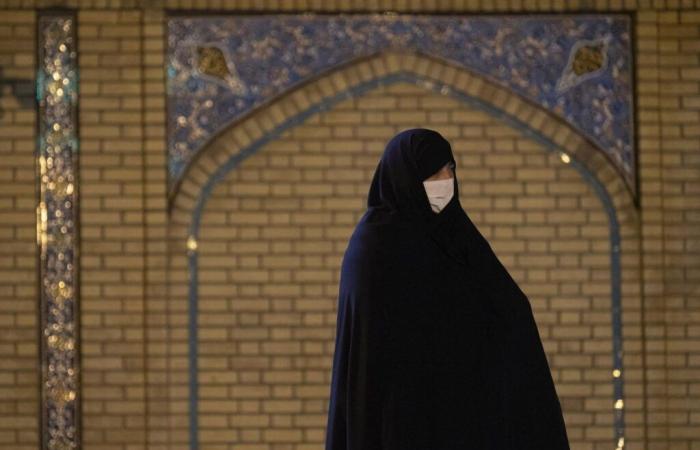Since December 13, Iranian President Massoud Pezeshkian has stubbornly refused to sign a drastic law on “the promotion of the culture of chastity and the hijab”, yet adopted by the traditionally very conservative Iranian Parliament. “This law, which contains ambiguities, is not easy to apply,” estimated on X the president, Massoud Pezeshkian, elected last July, calling not “undermining national harmony and solidarity”. “If he is forced to sign it for constitutional reasons, he will ask the police not to enforce it,” assures Bernard Hourcade, emeritus research director at the CNRS.
The text is draconian: fine of up to €2,000 for bare forearms or a lock of hair protruding from the hijab; ban on leaving the territory or withdrawal of driving license if the amount is not paid within ten days; prison for repeat offenses; taxi drivers encouraged to denounce their passengers… All crowned by a network of surveillance cameras in the hands of the moral police to identify those who do not wear the veil, compulsory since 1979.
An unenforceable law
While the law has been criticized for several months by human rights defenders in the country and abroad, it is the Iranian regime itself which is slowing down its application.
“The Woman, Life, Freedom movement, initiated in 2022 by the death of the young Mahsa Amini, had the effect of a cultural revolutionsays Farid Vahid, Iran specialist at the Jean-Jaurès Foundation. Women are veiling less and less, in Tehran but also elsewhere in the country. The most fanatical are ready to criminalize not wearing a headscarf more than drug trafficking, but the government is reluctant to implement an inapplicable law, which could act as a spark in an already explosive situation. »
“Out of fear”
More unexpectedly, the decisive blow came from the High Council for National Security, at the top of the regime’s pyramid, which judged that this legislation was likely to “undermine national defense”. In a letter sent to Parliament on Saturday, the body requested that the application of the law be postponed so that an amendment could be examined.
“Supreme Leader Ayatollah Ali Khamenei understands that such a drastic law on the veil would weaken the already weakened Islamic Republic,” believes Bernard Hourcade. “The economic situation is catastrophic, the rate of the rial has been in free fall since the regime lost its Syrian ally, explique Farid Vahid. There is a form of panic within the regime. If he retreats, it is not out of love for women’s freedom, but out of fear, because he is aware of his vulnerability. »
Seeing the collapse of two of its “proxies” in quick succession – Hezbollah, militarily defeated in Lebanon by Israel, and the regime of Bashar Al Assad, a loyal ally of Tehran since 1979 – the Islamic Republic lost by just one suddenly part of its glaze, this “axis of resistance” designed to protect it. “The Revolutionary Guards, both in their ideological and strategic ambitions, have just received a masterful slap, both military and political, analyse Bernard Hourcade. This is not the time to incite revolts over the hijab…”






